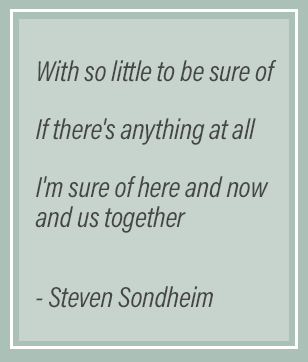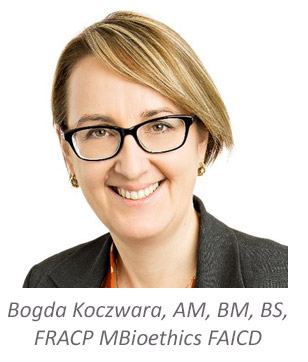The Psychosocial Study Group – a profile during the time of COVID-19
 2020 As I write these words, there are 3 million cases of COVID-19 infections around the world and every MASCC member has been directly or indirectly affected by the pandemic. Labs have closed, elective surgical lists were stopped, and work from home began as did home schooling of small children. Cancer work never really stops, not even in the time of the pandemic. That work evolves rapidly and the pandemic has presented us, the cancer clinicians and researchers, with urgent and significant challenges. And with many questions: “How do we deliver care safely?” “Whose treatment is no longer safe?” “What research can continue and how?”
2020 As I write these words, there are 3 million cases of COVID-19 infections around the world and every MASCC member has been directly or indirectly affected by the pandemic. Labs have closed, elective surgical lists were stopped, and work from home began as did home schooling of small children. Cancer work never really stops, not even in the time of the pandemic. That work evolves rapidly and the pandemic has presented us, the cancer clinicians and researchers, with urgent and significant challenges. And with many questions: “How do we deliver care safely?” “Whose treatment is no longer safe?” “What research can continue and how?”
You might wonder what a profile of the MASCC Psychosocial Study Group has to do with COVID-19. Everything.
We are one of the largest study groups with over 150 members from 27 countries. The group aims to involve and support members with interest in psychosocial oncology. We are a resource to MASCC with respect to psychosocial issues and promote sharing of related best research and practice information during the MASCC annual meeting. While the details of our recent work is available on our website, a short summary is that our group focuses on the complex interface between cancer care and “all the other stuff” relevant to patients and to the health care providers and researchers.
The reality of the pandemic was brought home to me when, as a cancer clinician, a patient phoned to ask if I was still seeing patients. In this case, as with many cancer patients, the pandemic poses not only the threat of serious infection (something patients are very familiar with), but also a fear of abandonment by their cancer care team. They are concerned they are now a lower priority or higher risk in the context of the pandemic. They share a common reality of separation from many social support systems that sustain them on the daily basis.
 How many of you have implemented the policy of “no visitors or accompanying persons during chemotherapy?” How many of you were forced to deliver bad news via phone? How many are grappling with how to assist patients who have become unemployed overnight and are facing financial crises? And all this while we are attending endless Zoom meetings while our children interrupt. And for those of us who have not fallen ill, we are the lucky ones.
How many of you have implemented the policy of “no visitors or accompanying persons during chemotherapy?” How many of you were forced to deliver bad news via phone? How many are grappling with how to assist patients who have become unemployed overnight and are facing financial crises? And all this while we are attending endless Zoom meetings while our children interrupt. And for those of us who have not fallen ill, we are the lucky ones.
Some of you might have been sick already. Some have lost a family member or a friend to the disease. Some grieve for the patient or colleague who died. Depending where you are in your “COVID-19 Parallel Universe,” you may be numb with grief, or exhausted by uncertainty, or perhaps just a little hopeful for the future. Or all of the above.
Victor Frankl said, “Those who have a ‘why’ to live, can bear almost any ‘how’.” So, to cope, I often revert to my purpose. The pandemic has taught us some very tough lessons – it has shown us that change can happen overnight and cannot be controlled; that we live in a global world that is tightly interconnected; that health and economy are interrelated but you cannot fix the latter without fixing the former; that we are – as members of MASCC, of various study groups, as patients, health care providers, researchers – all in this together.
There is lots to do. We need to support patients and support each other. We need to develop (and study) new means of care delivery. The pandemic certainly opened the doors for digital health. But we should not see technology as a quick band aid for everything. Not every patient has required digital health literacy. So, when your mind is wandering at your next Zoom meeting, think about what there is for you to do when the pandemic is over.
In this time of the pandemic, we can start by recognizing that our global community is a source of support, meaning, and inspiration. And the Psychosocial Study Group – and all the MASCC study groups - should share ideas and pose questions that relate to the challenges of our new reality and solve them collectively.
As I look at the opportunities ahead, I see three broad directions for the group that come under one common theme of connection. First, we have a chance to take a global view of cancer psychosocial care and recognize not just challenges but also lessons that come from different settings across the globe. Second, we should consider the relationship between the care we deliver to others and the care we require for ourselves to be able to care for others. Last, we must acknowledge the significant role that patients play in how we deliver care and conduct research and support it. In clinical care, this means supporting self-management. In research and policy development, this includes engaging with consumer advocates. Both concepts are operationalized differently across the globe. MASCC, as an international group, offers the unique opportunity to connect these diverse experiences in one place.
Psychosocial wellbeing is defined as a state when individuals and/or communities have cognitive, emotional, and spiritual strengths combined with positive social relationships. Let the pandemic help us find the connections to build these strengths and relationships across the global MASCC community and let the Psychosocial Study Group be the driving force to support it. Please join our group! Feel free to contact me on [email protected] to share your ideas on how the group can advance the MASCC mission.
Bogda Koczwara
Bogda Koczwara, AM, BM, BS, FRACP, MBioethics, FAICD, is the Vice-Chair of the Psychosocial Issues Study Group.
Lidia Schapira, MD, serves as Chair.


